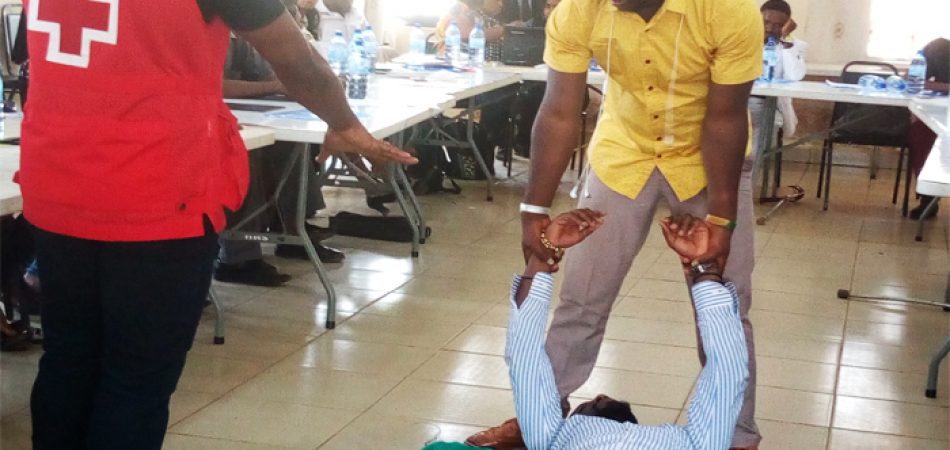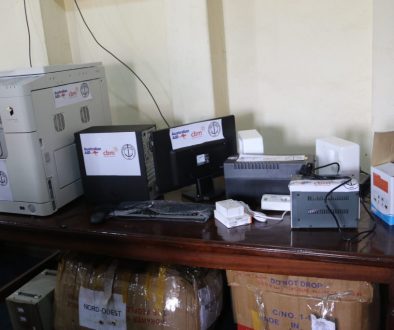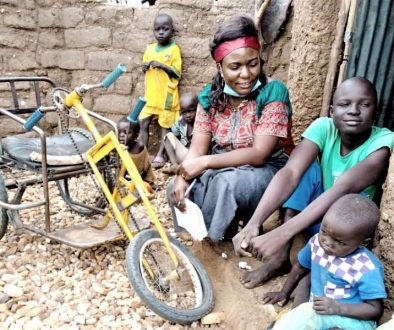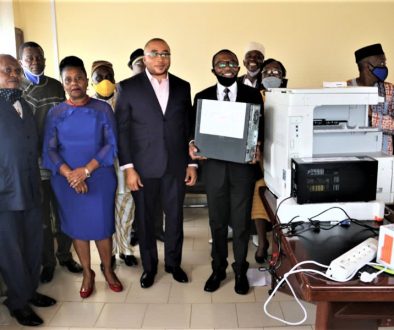A situational analysis carried out by the Coordinating Unit of Associations of Persons with Disability (CUAPWD) reveals that 176 persons with disability have been identified as internally displaced persons within Bamenda II Council area in Mezam Division of the Northwest Region.
A monitoring tool developed by CUAPWD further reveals that 10 males with disabilities have been shot dead, 21 persons with disability have experienced property loss and severe torture. Based on this analysis, the Program Manager of CUAPWD, Ndi Veronica Ngum has lamented that lives of many persons with disabilities have been severely affected by the Anglophone crises.
A young boy (name withheld) from Bamenda with hearing impairment recounts the ordeal he went through saying, “I was bitten by the military because they asked for my Identification Card and I could not understand what they were asking for since I don’t hear. In an attempt to understand what they were saying, they didn’t care that I had hearing impairment. Instead, they brutalised me with beatings.”
Another boy (name withheld) with visual impairment in Bambili narrated his own sad experience and the brutality he experienced from the military. He explained that noise in the hostel where he lives in Bambili attracted the military who bashed into rooms and pulled out students including him, forcing them to do rigorous sport.
“I couldn’t do that kind of sport since I can’t see but the military didn’t understand. So they molested me and asked me to go back after taking me far away from my room. I couldn’t come back since I was not with my white cane. I had to wait until I found someone who led me home,” narrated the boy with visually impairement.
In this regard, the Delegation of Women’s Empowerment and the Family in collaboration with the CBC Health Services’ Socio-Economic Empowerment of Persons with Disability (SEEPD) program and the United Nations Office for Coordination of Humanitarian Affairs (OCHA), organized a one day workshop on the safety measures for persons with disability in crises situation. The workshop took place on December 7, 2018, in Bamenda with the objective of building capacity on practical ways of coping in crises situations.
Speaking at the start of the workshop, the Northwest Regional Delegate of Women’s Empowerment and the Family, Mr. Wirba Asan regretted that persons with disability are among the most vulnerable and socially excluded groups in crisis situations.

“Persons with disability have difficulty accessing humanitarian assistance programs due to variety of societal, environmental and communication barriers, including gender-based violence (GBV),” said Mr. Wirba. He added that the workshop falls within the context of the 16 days campaign to fight GBV, for which the SEEPD program has been raising awareness through a radio drama series.
A representative from the Red Cross drilled participants on safety measures in crises situation. Participants were told to stock food in their homes, water, and first aid medication, be aware of the emergency numbers, call a hospital ambulance when need arises, and create solidarity chains, among other things.
A resource person from OCHA, through a presentation, educated participants on inclusive assistance in humanitarian settings. The presentation highlighted the key elements of humanitarian actions; safety measures, the dignity of recipients, accountability, participation, and empowerment.
The workshop, which was attended by over 50 persons with disability in Bamenda was one amongst the many outcomes that the SEEPD Program has recorded in its partnership with the Ministry of Women’s Empowerment and the Family (MINPROF).
The workshop was an opportunity for the SEEPD program to expand its partnership with organizations like OCHA and Red Cross, which hopefully can join the program in exploring ways to improve on the quality of life of persons with disability. The partnership between the CBC Health Services and MINPROF, which has been applauded by the Minister of MINPROF, is thanks to the support from Australian Aid and CBM.

The workshop came on the heels of the commemoration of the International Day for Persons with Disability on the theme, “Empowering persons with disability and ensuring inclusiveness and equality,” which took place on December 3, 2018.



